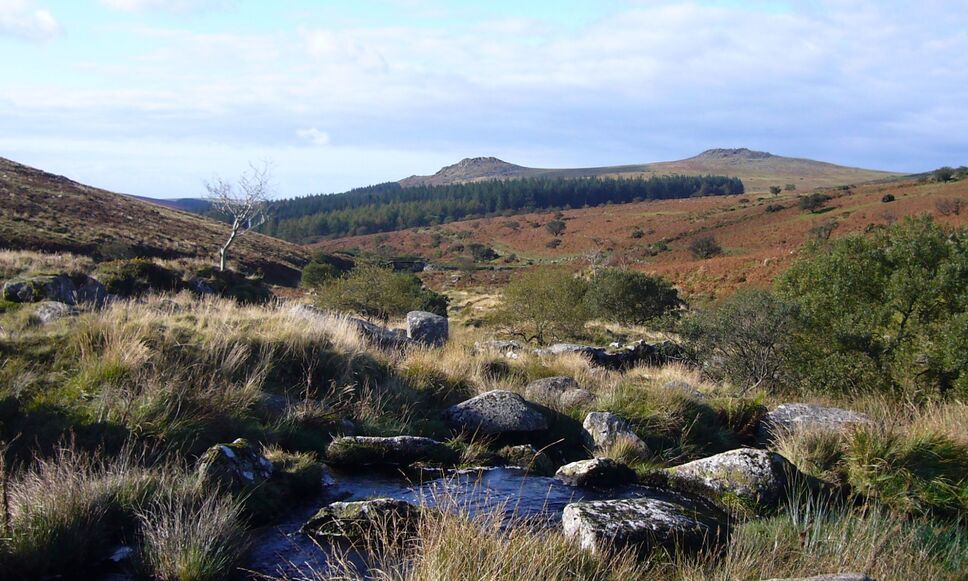Probably the most famous arch along the Devils Garden trail at Arches National Park is Landscape Arch. Unlike Tunnel Arch and Pine Tree Arch, Landscape Arch is on the main Devils Garden trail and there is no need to take a side trail to see it (although there is a short side trail to get a bit closer to it). It’s the longest natural bridge at Arches national park and also considered to be so in the world.
While it was once possible to hike under Landscape Arch, the park service has closed the trail that once passed under it because there have been three instances since 1991 when large slabs of stone have fallen from the thinnest section of the arch. This section can easily be identified as the color under the arch is much a brighter red than other areas of the arch.
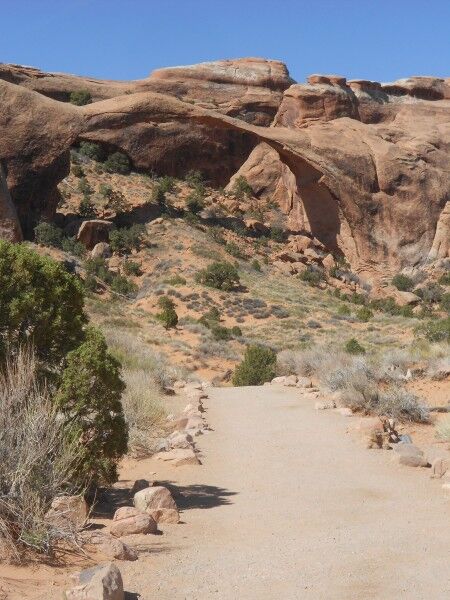
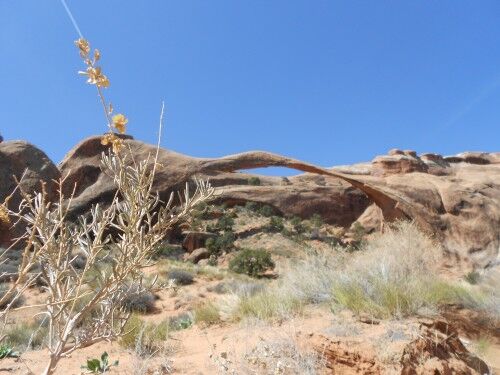
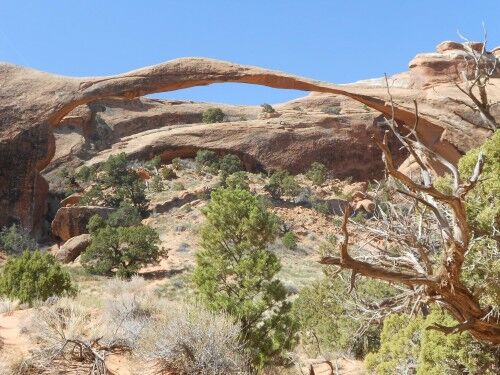
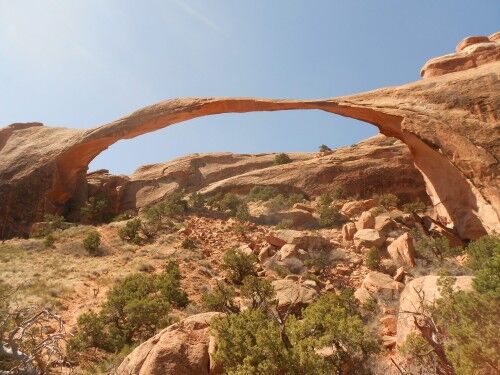
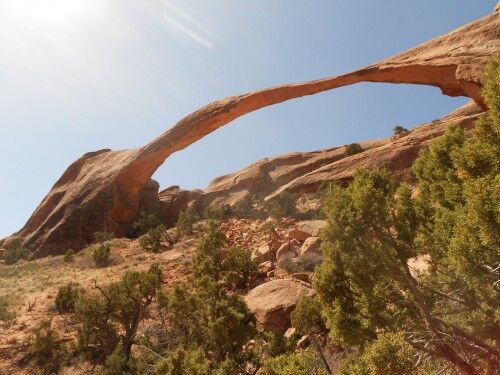
This is the goal of most people taking the Devils Garden trail. It’s 1.6 miles round trip from the trailhead to Landscape Arch and the trail is considered easy terrain. There are more (beautiful) arches beyond Landscape Arch that are definitely worth seeing, but the terrain does get significantly more difficult from this point and requires rock scrambling is some sections.
There’s an informational sign on the which says the following about the 1991 Landscape Arch rockfall:
September 1, 1991 — Hikers thought they heard cracks of thunder from distant clouds. Visitors resting under Landscape Arch noticed loud cracking and popping noises overhead. They fled as small rocks tumbled from the slender 306-foot-long span. Moments later, a 60-foot-long slab peeled away from the arch’s right side. When the dust settled, 180 tons of fresh rock debris lay scattered on the ground.
What caused this cataclysmic event? Water had been slowly shaping the arch for countless centuries, dissolving cement between sand grains, seeping into tiny cracks, freezing and expanding. What had finally upset the delicate balance?
Unseasonably heavy rains the preceding ten days may have filled pore spaces within the sandstone. The added weight may have finally overwhelmed the rock slab in its timeless struggle with gravity.
Immediately after the 1991 rockfall even, the National Park Service closed the trail which took visitors up and under the arch. The trail under the arch remains closed today.
It is a dilemma! The longer time passes without a rockfall, the more stable the rock formation may seem. On the other hand the passage of time takes Landscape Arch closer to ultimate collapse. So, in the interest of visitor safety and preservation of the landscape beneath this fabulous arch, the longer trail under the arch remains closed. Please respect this closure by staying on designated trails.
